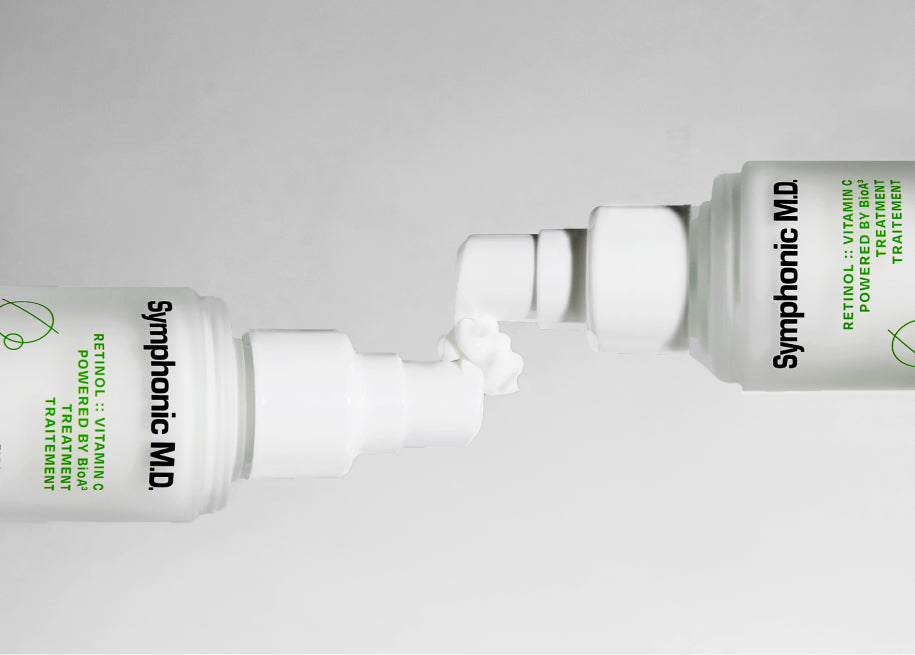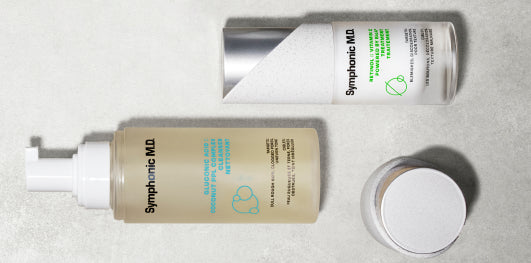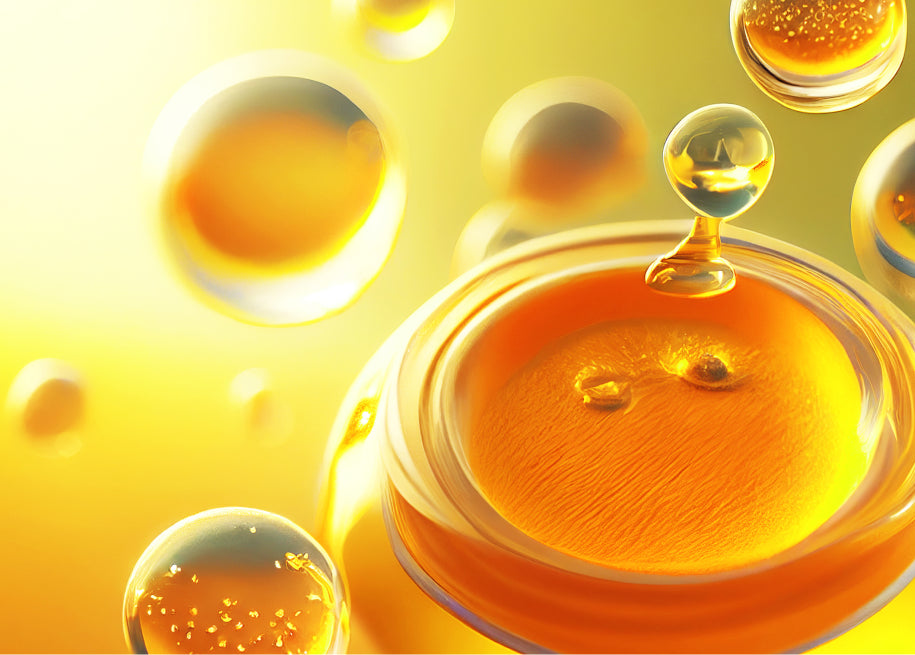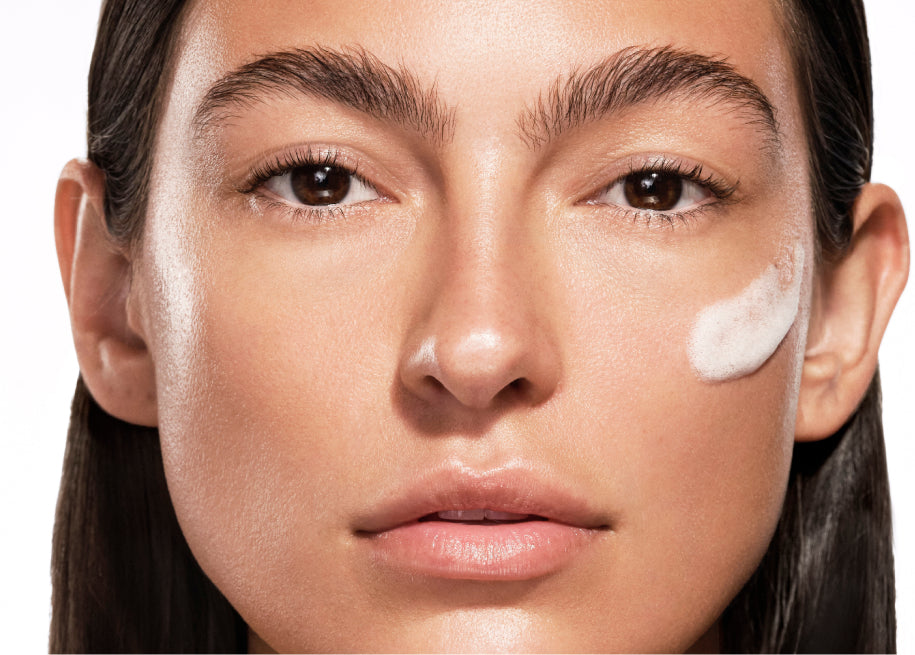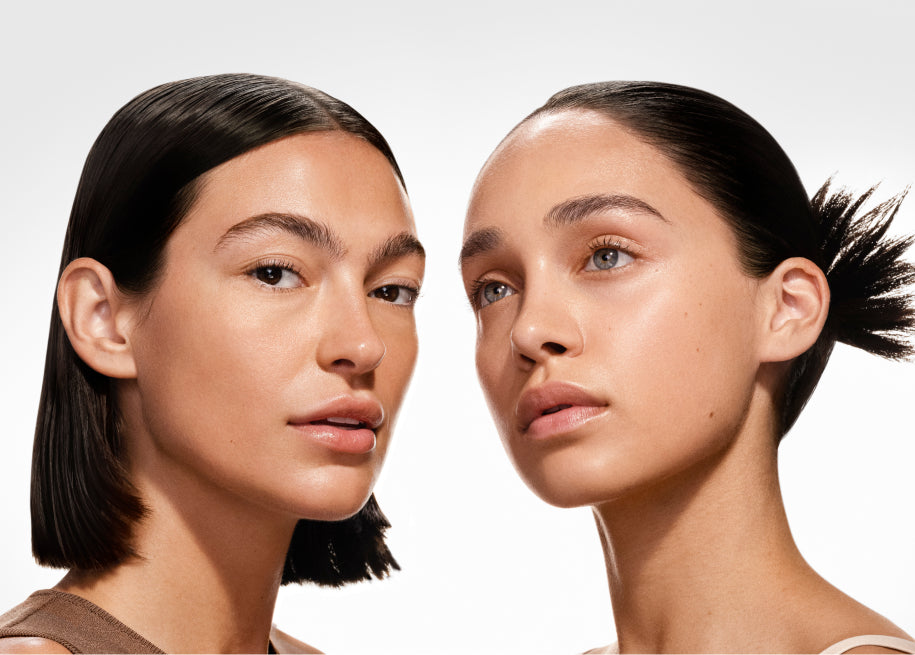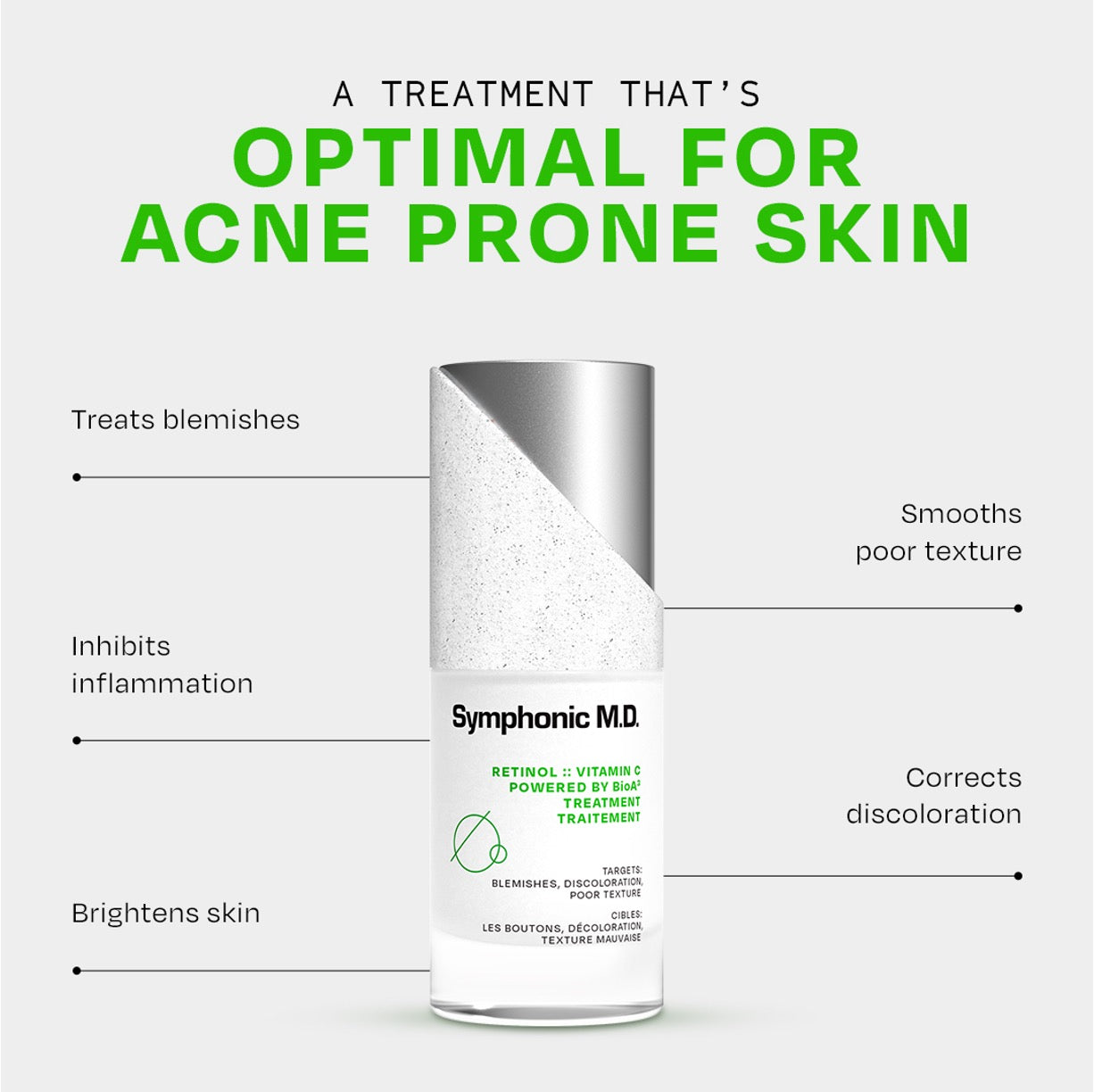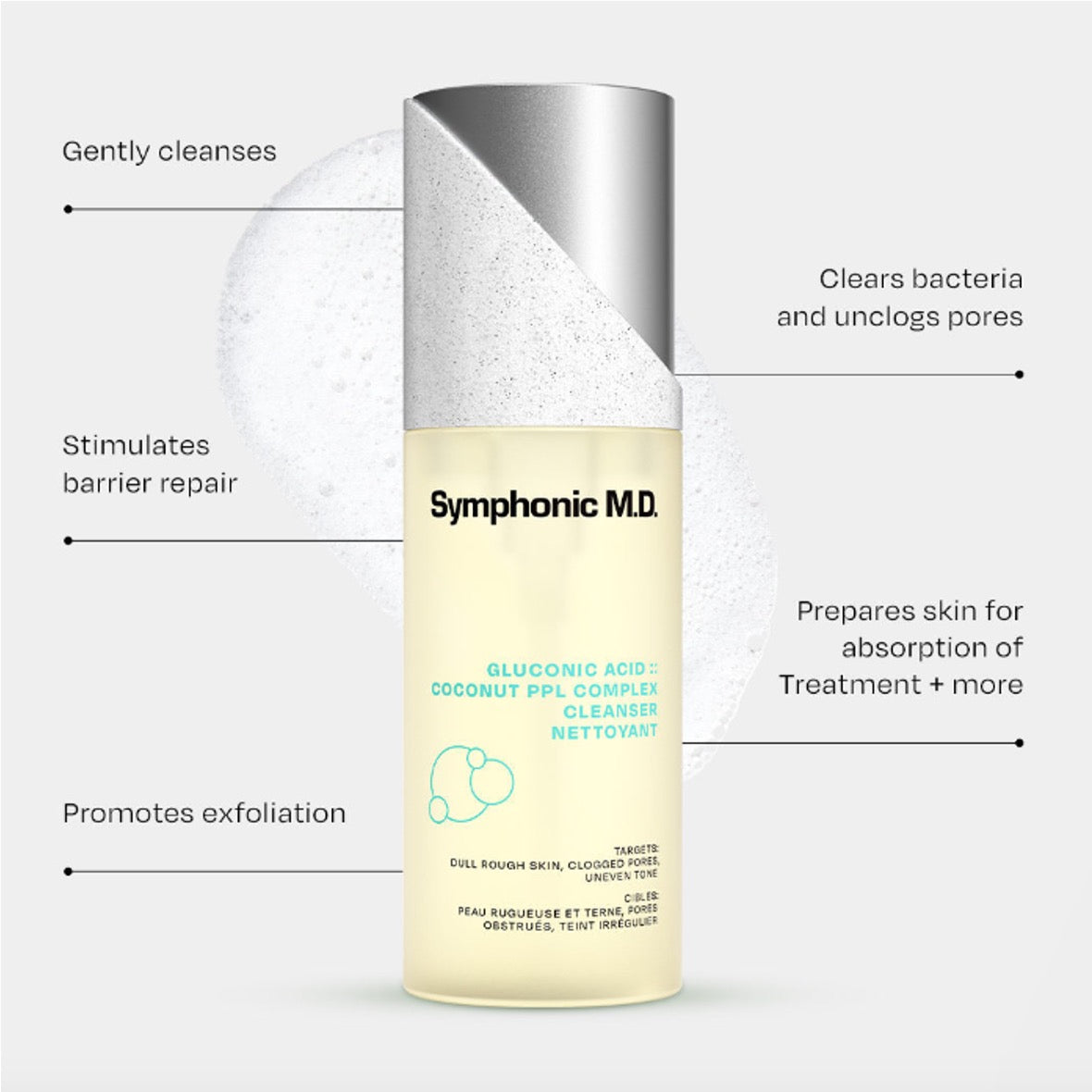There’s a lot of talk about cosmeceuticals, but what are cosmeceuticals and how do they work? Read our guide to find out.
Cosmeceuticals are skincare products that have bioactive ingredients. They're not recognized as medicines, but some people still find that they have powerful, near-medical effects.
More and more people are trying cosmeceuticals. In 2022, 40% of dermatological prescriptions were for these strong skincare products. If you haven't tried a cosmeceutical product yet, chances are that you've seen them in stores.
Let's take a look at how cosmeceuticals work, what makes them different from other skincare products, and some of the most popular bioactive ingredients.
What is cosmeceutical skin care?
The definition of cosmeceuticals is hidden in its name. "Cosmeceuticals" is a combination of two words: "cosmetics" and "pharmaceuticals". So cosmeceutical skincare is where pharmacy-level ingredients meet over-the-counter cosmetics and skincare.
Skincare brands have searched for ways to layer bioactive ingredients, manage any side-effects, and improve their effectiveness.
Antioxidant serums? Sunscreens with botanical extracts? Moisturizer loaded with age-defying retinol? They're all cosmeceuticals: skincare products with biologically active ingredients.
Dermatologists and skincare experts have been talking about cosmeceuticals since the 1980s. Since then, thousands of new and powerful products have come onto the market.
What is the purpose of cosmeceuticals?
There are cosmeceuticals for pretty much every skincare issue or goal you can think of. People use cosmeceuticals to remove wrinkles, slow down the signs of aging, heal acne scars and uneven skin texture, keep skin hydrated, and protect against damage from UV rays and pollution.
Over time, cosmeceuticals have become more refined and targeted. Skincare brands have searched for ways to layer bioactive ingredients, manage any side-effects, and improve their effectiveness. These days, they often aim to support skin health on a molecular level.
Are cosmeceuticals cosmetics?
The definition of cosmeceuticals is different from simple cosmetics. It all comes down to how they work on your skin.
Cosmetics are skincare products that clean, protect, or otherwise maintain your skin. They work on the area where they're applied. So, for example, if you apply a cosmetic to your T-zone, that's where it will take effect.
Cosmeceuticals go deeper. Instead of sitting on the top layer of skin (epidermis), they're designed to soak into skin and change it from the inside. Different active ingredients are targeted to different cells, molecules, or layers in the skin.
What is the difference between cosmetics, drugs and cosmeceuticals?
Cosmetics, cosmeceuticals, and drugs are three different things. They're not the same — even if the packaging looks similar.
Instead of sitting on the top layer of skin (epidermis), they're designed to soak into skin and change it from the inside.
You can think of cosmeceuticals like a hybrid between cosmetics and drugs. They aim to support your skin's health and looks — but they're not medicine, and they shouldn't be treated as such.
What is the difference between cosmeceuticals, pharmaceuticals, and nutraceuticals?
Just to complicate things, there are also products on the market known as nutraceuticals. Here's the easy way to remember what's what:
How is cosmeceutical skincare different from other skincare products?
Cosmeceuticals are different from other cosmetics and skincare because they have powerful, biologically active ingredients.
Skincare brands choose the ingredients, often based on scientific research. They usually test cosmeceuticals to see how effective they are, although it's important to know that cosmeceuticals don't have to follow the same safety and efficiency tests as actual pharmaceuticals.
Cosmeceuticals are formulated so that they're shelf-stable and effective. That means they won't break down or stop working over time. The latest generation of products are also designed to be absorbed by the skin, so that they can work deep inside its layers to improve skin health from the inside out.
The best cosmeceutical products will have visible, lasting effects on your skin health and appearance.

Are cosmeceutical products 'better' than regular skincare products?
Whenever we're talking about skincare, it always comes back to your personal goals and skincare issues. Cosmeceutical products are designed for all sorts of concerns, from aging to acne, congestion, and hyperpigmentation.
Some cosmeceutical products are powerful enough that they have to be prescribed by a dermatologist. These products contain a high proportion of active ingredients which can have powerful effects, such as retinol.
The biggest difference between regular cosmetics and cosmeceuticals is their potency.
Cosmeceuticals could be highly effective for you. You'll notice more changes than you would from a classic cosmetic. However, the right skincare products will be different for everyone.
Why choose a cosmeceutical over another product?
If you're looking at cosmeceuticals, you've probably done your skincare research — or you're planning to!
The active ingredients in cosmeceuticals are based on scientific research. That means there is some evidence backing their claims. Because they contain bioactive ingredients, cosmeceuticals are often stronger and more effective than standard cosmetics.
How to tell the difference between cosmeceuticals and regular skincare products?
The biggest difference between regular cosmetics and cosmeceuticals is their potency. Cosmeceuticals contain active ingredients in much higher concentrations than other products.
However, there's no strict definition of cosmeceuticals — so there's no way to tell the exact concentration of the active ingredients.
One trick you can try is looking at the ingredients label on a product. They're always listed in order of concentration. So, for example, a product where retinol is listed in the first five ingredients will be a much stronger cosmeceutical compared to one which puts retinol at the end of the list.
If you're still not sure whether a product counts as a cosmeceutical, you can always check with your skincare specialist or dermatologist.
Who are cosmeceutical products best for?
Cosmeceuticals are designed to have real, lasting effects on your skin's structure. They're made for people who have specific skin concerns, such as sun damage, acne, wrinkles, or uneven skin texture or tone.

Types of cosmeceutical products
Cosmeceuticals come in many different formats: serums, moisturizers, sunscreens, treatments, exfoliants, and more. Each one has its own unique formula.
However, there are some active ingredients which have become famously effective and popular. We've rounded up our 10 favorite botanicals, vitamins, and bioactive ingredients to help you find your dream skincare routine.
Alpha-lipoic acid
Alpha-lipoic acid is a type of antioxidant. It fights off the skin damage caused by free radical molecules — and even better, it recycles other antioxidants so that they can keep working for longer.
This enzyme is fat-soluble and water-soluble, so it can be absorbed easily into your skin. It's highly recommended for fixing sun damage and signs of aging.
Chamomile
You've probably heard of chamomile as a soothing, gentle tea. But it's also a skincare superhero!
Chamomile is a natural anti-inflammatory, anti-microbial, and antioxidant. It's an analgesic — which means it can reduce soreness — and an effective moisturizer. However, some people find that it can trigger contact dermatitis, so you'll need to patch-test chamomile products before using them.
We recommend chamomile if you want smooth, calm skin with an even tone.
Ginseng
Ginseng is a herb used in traditional Eastern medicine. Now it's being studied by scientists all over the world for its anti-aging powers.
Ginseng may be able to help regulate inflammation, cardiovascular activity, cell division, and the immune system. In skincare terms, it can boost hydration levels and improve skin's natural defenses.
Green tea
Green tea is known for its antibacterial and anti-inflammatory powers. It's a popular active ingredient if you're struggling with acne, because it fights the bacteria that cause infections and clogged pores. As an antioxidant, green tea can also be helpful against sun damage and signs of aging.
Hyaluronic acid
Hyaluronic acid is one of the best-known cosmeceutical ingredients. It has transformative effects on skin: reducing lines, wrinkles, and scars, helping wounds heal faster, and keeping skin flexible as you age.
Hydroxy acids
Alpha-hydroxy acids (AHAs) are a group of chemical exfoliators. They can unblock pores, lift away dead skin cells, and improve skin texture and tone over all. They're especially recommended if you struggle with acne, scarring, dull skin tone or uneven skin texture.
Peptides
Peptides are another type of acid: amino acids. They're the chemical building blocks of essential proteins in the skin, like collagen and elastin. Those proteins keep skin plump, firm, and resilient — so peptide serums are highly recommended to combat signs of aging.
Retinoids
Retinoids are a group of molecules derived from vitamin A. There are a range of retinoids available over the counter, including retinol, retinyl esters, and retinaldehyde. They're best known for clearing acne, smoothing skin texture, and helping to fade fine lines and wrinkles.
Vitamin C
Vitamin C is another natural antioxidant. It shields the skin against toxins, pollution, and aging.
It's also protective in other ways. Vitamin C can actually increase the effectiveness of sunscreen, boost collagen levels, and speed up healing from acne.
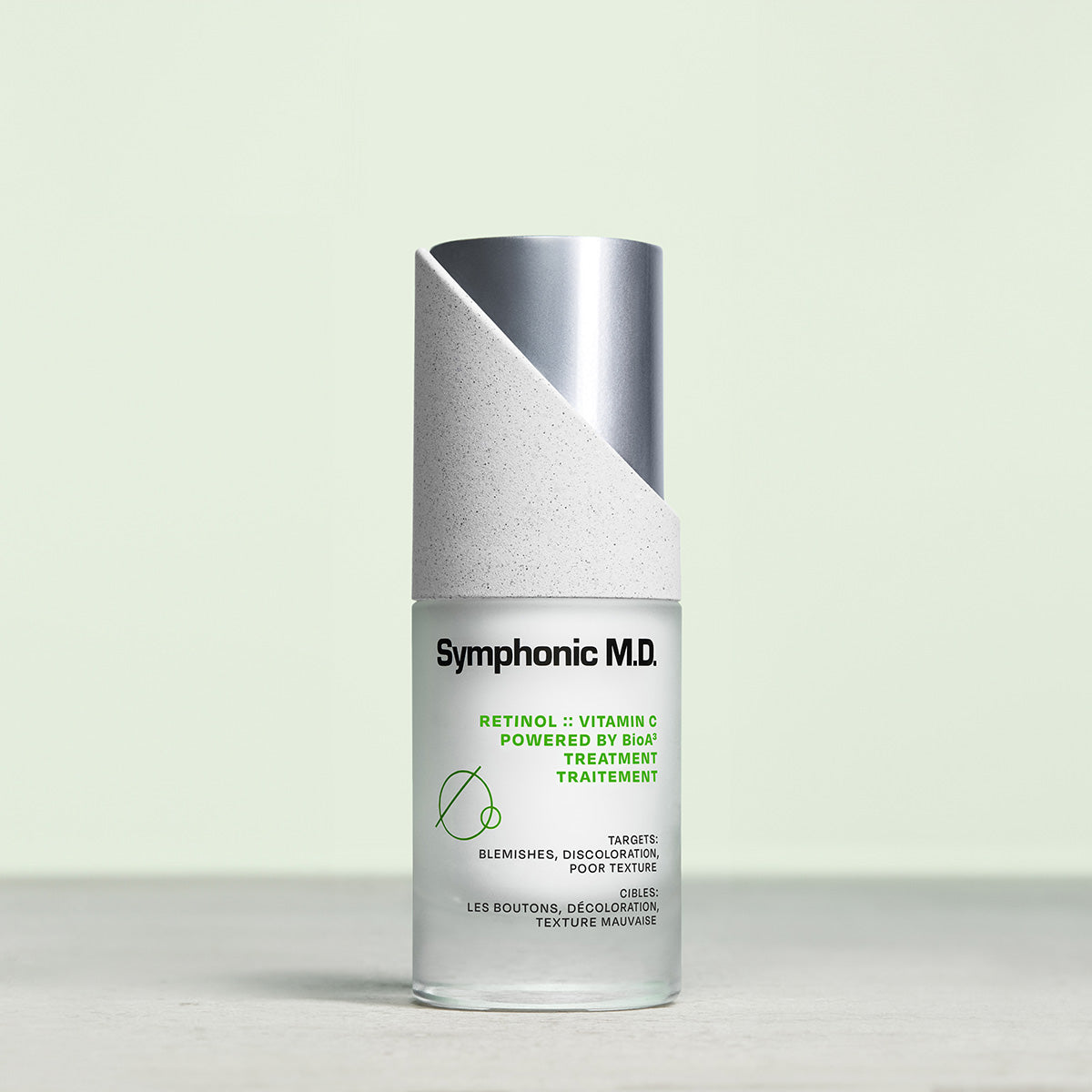
Retinol :: Vitamin C
This anti-inflammatory serum powered by BioA3 targets blemishes, tone, and texture — helping to clear bacteria and smooth skin without clogging pores.
Vitamin E
Next up in the list of protective, antioxidant ingredients is vitamin E. It's also notable for its hydrating effect; vitamin E is a humectant and an emollient, which means it helps your skin to both absorb and retain moisture.
The pros and cons of cosmeceuticals
The benefits of cosmeceuticals are clear: stronger, higher-concentration ingredients mean that you can see the results on your skin right away. However, there are some downsides to keep in mind too.
Pros of cosmeceuticals
- Powerful skincare effects without a need for expensive medical prescriptions.
- Targeted formulas for specific skin concerns.
- No need for invasive treatments or physical exfoliants.
Cons of cosmeceuticals
- Cosmeceuticals aren't subject to the same efficacy and safety testing as pharmaceuticals.
- Active ingredients can cause side-effects or reactions, because their effect on skin is so much stronger.
What results should I expect from using cosmeceutical products?
Cosmeceutical products are designed to have deep, long-term effects on your skin. You should see visible results. However, some active ingredients will take a while to kick in. For example, it can take up to 6 months to see the full benefits of retinol.
How can I boost the work of my cosmeceutical products?
Skincare products work best when they're part of a regular routine. To get the best results, you should be cleansing and moisturizing your skin every day. Following a healthy lifestyle — with plenty of water, sleep, exercise, and varied meals — will also support your skincare goals.
Symphonic M.D.’s cosmeceutical products
Symphonic M.D. represents the latest generation of cosmeceutical skincare. We use the most effective ingredients at powerful concentrations, clinically tested for results.
But what really makes these products unique is how we combine active ingredients. No other skincare products on the market use our formulas.

Retinol :: Vitamin C Powered by BioA3 Treatment
Retinol and vitamin C are both known for managing acne and scarring, smoothing out skin texture, and reducing hyperpigmentation. But until now, you had to use them separately.
The Retinol :: Vitamin C Powered by BioA3 moisturizer from Symphonic M.D. is different. It's designed to clear pores, fight bacteria, and create a smoother skin tone and texture. Based on our clinical trials, it doesn't cause side-effects — even on sensitive skin! It's faster and simpler than other retinol and Vitamin C products.
Gluconic Acid :: Coconut PPL Complex Cleanser
Our cleanser is a unique combination of ingredients, too. We've blended gluconic acid with a coconut-derived phospholipid complex to create a gentle cleanser that exfoliates, brightens, and renews skin in just one cleansing session.
While the cleanser lifts away dead skin and dirt, it actively repairs the skin's natural defenses and fights against bacteria that could trigger skin problems. It's kind to skin — but tough on blemishes.
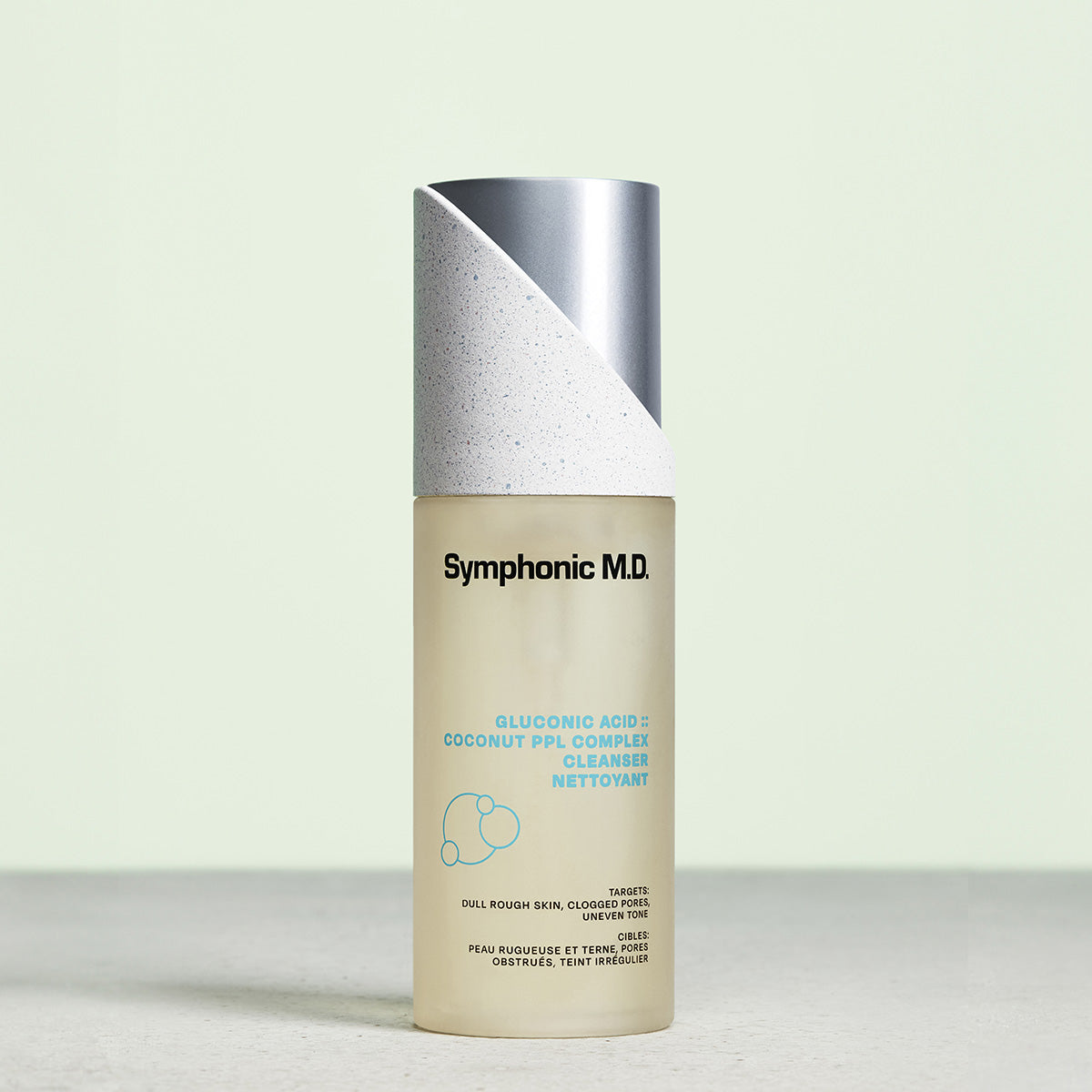
Gluconic Acid :: Coconut PPL Complex
This calming antimicrobial formula targets dull skin, clogged pores, and uneven tone — gently shedding cells while strongly stimulating barrier repair to leave skin soft and purified.
But what really makes these products unique is how we combine active ingredients.
The bottom line
Cosmeceuticals walk the line between regular cosmetics and medical-grade ingredients. New skincare products that use bioactive ingredients like Vitamin C and retinol are designed to give you incredible results without a prescription.
However, it's important to use them as part of a routine, understand the possible side-effects, and choose cosmeceutical products which are right for your skin type.
